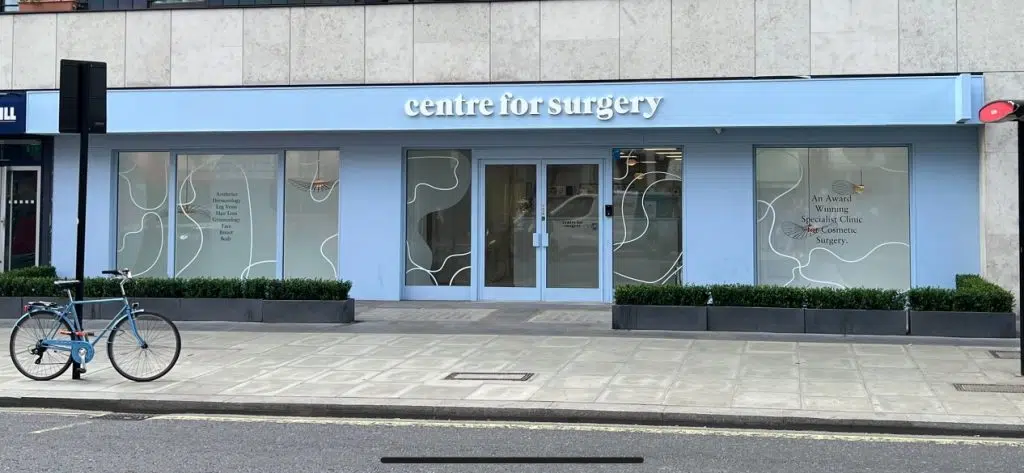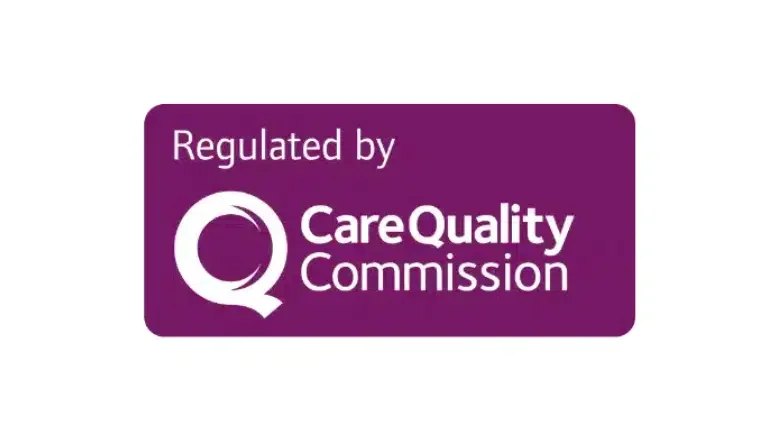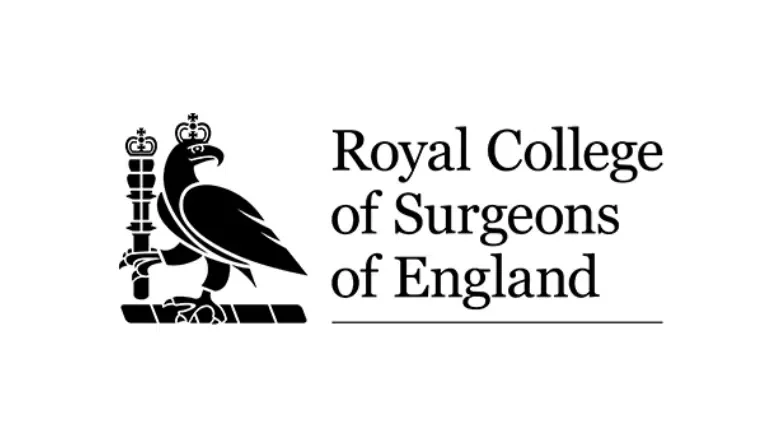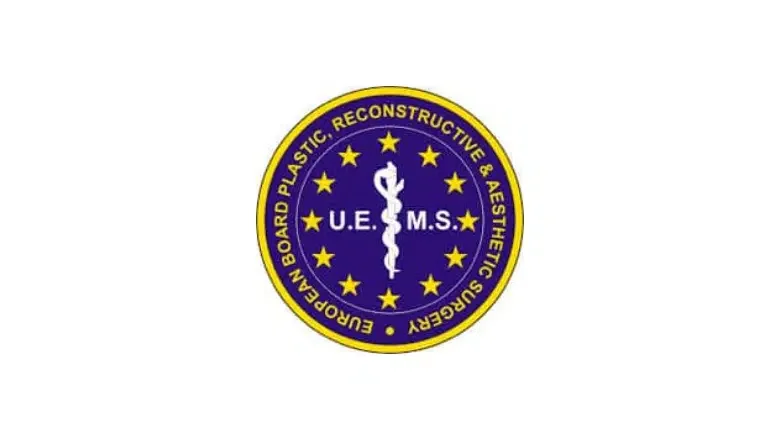Breast implants have transformed the lives of countless women in the UK and around the world, boosting their self-confidence and enhancing their appearance. While breast augmentation is a popular cosmetic procedure worldwide, it does come with some potential side effects, including Breast Implant Illness (BII).
As with any surgical procedure, breast augmentation carries inherent risks and complications, including swelling, bruising, delayed wound healing, and infection. However, when breast implants are involved, there is a unique set of complications that could arise. Although these complications are relatively rare, it is crucial for patients to be informed and aware of them. One such complication is Breast Implant Illness (BII).
For those who have undergone breast implant surgery, understanding BII, its symptoms, and potential treatment options is essential. In this article, we delve into the details of BII to provide a comprehensive overview of this potential complication.
What Is Breast Implant Illness (BII)?
Breast Implant Illness (BII) is a term used to describe a collection of symptoms that some patients experience after receiving breast implants. Although BII is not a universally recognized medical diagnosis, many patients and medical professionals across the UK acknowledge its existence and the impact it has on those affected.
Symptoms of Breast Implant Illness (BII)
Symptoms of Breast Implant Illness (BII) can be diverse and nonspecific, which can make it challenging to definitively link them to breast implants. However, many patients who experience BII report a combination of the following symptoms:
Fatigue
Persistent tiredness or exhaustion, even with adequate rest and sleep.
Joint pain
Discomfort, inflammation, or stiffness in the joints can impact daily activities.
Brain fog
Difficulty concentrating, memory issues, or mental confusion.
Sleep disturbances
Insomnia, poor sleep quality, or other sleep-related issues.
Headaches
Frequent or chronic headaches, including migraines.
Hair loss
Unexplained hair thinning or loss.
Skin rashes
Red, itchy, or inflamed skin, sometimes accompanied by dryness or unusual sensitivity.
Autoimmune-like reactions
Symptoms that mimic autoimmune disorders, such as lupus or rheumatoid arthritis, including inflammation, muscle pain, and weakness.
Gastrointestinal issues
Bloating, abdominal pain, constipation, or diarrhoea.
Respiratory problems
Shortness of breath, wheezing, or other breathing difficulties.
Anxiety and depression
Persistent feelings of worry, sadness, or hopelessness can impact mental health and daily functioning.
It is essential to note that these symptoms can also be associated with various other medical conditions. Therefore, if you experience any of these symptoms, it is crucial to consult with a surgeon at Centre for Surgery for a comprehensive evaluation and appropriate diagnosis.
What Causes Breast Implant Illness?
The exact cause of Breast Implant Illness (BII) remains unclear, as it is not yet a widely recognised medical diagnosis. However, several theories attempt to explain the possible causes of BII, which include:
Immune response
One theory suggests that BII may result from an immune system reaction to the breast implants. In some individuals, the body may perceive the implant as a foreign object and mount an immune response, leading to inflammation and various symptoms associated with BII.
Silicone leakage
Another theory relates to the potential leakage of silicone from silicone-based implants. In some cases, the silicone may leak into the surrounding tissue, triggering an inflammatory response or contributing to the development of autoimmune-like symptoms.
Bacterial infection
Subclinical infections, where bacteria may be present around the implant without causing overt signs of infection, could potentially lead to chronic inflammation and contribute to BII symptoms.
Biofilm formation
Biofilms are communities of microorganisms that can form on the surface of breast implants. These biofilms can cause persistent low-grade inflammation and may be associated with the development of BII.
Genetic predisposition
Some individuals may have a genetic predisposition that makes them more susceptible to developing BII. This theory suggests that certain genetic factors may increase the likelihood of an adverse reaction to breast implants.
How do we check if you have breast implant illness?
Well, it’s important to know that breast implant illness, often shortened to BII, isn’t officially recognised as a medical condition. This means there isn’t a set test or list of things that doctors look for to say, “Yes, you have BII.” People who think they have this condition often feel a lot of different symptoms, from fatigue to joint pain. Because the symptoms can be so varied, you might go to your doctor for these issues without even thinking they could be linked to your breast implants.
RELATED: Is There A Breast Implant Illness Test?
Everyone’s experience with this is different. Usually, a surgeon figures out if you might have BII by checking if anything else could be causing your symptoms. In other words, they try to rule out all the other things that could be making you feel unwell. Only after doing that might they consider that your breast implants could be the issue.
Treatment Options for Breast Implant Illness: Exploring Various Approaches
Breast Implant Illness (BII) is not yet a widely recognised medical condition, so there is no standardised treatment approach. In many cases, the surgeon must determine the most appropriate treatment strategy for each patient individually. The process begins with identifying the issue, but since there is no definitive diagnosis for BII, it is crucial to rule out other potential causes of the abovementioned symptoms.
Many patients with BII have found relief through the removal of their implants. This can be done using various surgical techniques, such as a partial capsulectomy or an en-bloc capsulectomy, which involve removing the implant and the surrounding capsule either partially or entirely.
RELATED: Breast Implant Removal (Explant)
Several studies have indicated that patients who underwent explantation, including en-bloc capsulectomies and partial capsulectomies, experienced significant improvement in their BII symptoms. The level of improvement was found to be similar regardless of the type of capsulectomy performed.
Although some research suggests that en-bloc capsulectomy can lead to an improvement in BII symptoms, the evidence supporting its effectiveness is limited and further investigation is required.
RELATED: Breast Implant Removal FAQs – Q&A about Explant Surgery
In addition to the surgical approach, researchers have also explored the potential impact of a patient’s BMI and implant characteristics on the improvement of BII symptoms following explantation. While some preliminary findings have been promising, more research is needed to better understand the role of explantation in addressing breast implant illness.
Does Bacteria or Infection Contribute to BII?
The exact cause of Breast Implant Illness (BII) remains unclear, and while it is not a recognized medical condition, some researchers have investigated the potential role of bacteria or infection in contributing to BII. It is important to note that further research is needed to establish a definitive link between bacteria or infection and BII.
One study by Swanson (2020) suggested that BII could be related to the presence of biofilms, which are bacterial colonies that form on the surface of implants. Biofilms have been linked to other implant-related complications such as capsular contracture and breast implant-associated anaplastic large cell lymphoma (BIA-ALCL). Swanson’s study hypothesised that biofilms might also contribute to the development of BII symptoms, although the exact mechanism is not well understood.
Another study by Collett et al. (2019) investigated the relationship between breast implants and systemic symptoms (colloquially referred to as BII) in the context of the implant’s surface type. The researchers found that textured implants, which have a higher risk of bacterial contamination, were associated with an increased risk of developing systemic symptoms compared to smooth implants. This study suggests a possible link between bacterial presence and the development of BII-like symptoms.
Despite these findings, there is still limited research on the role of bacteria or infection in BII, and more studies are needed to confirm these associations. It is essential for patients and healthcare professionals to stay informed about the latest research and discuss any concerns related to breast implants and potential complications.
References:
- Swanson, E. (2020). Breast Implant Illness: Symptoms, Patient Concerns, and the Power of Social Media. Plastic and Reconstructive Surgery, 146(4), 787-788.
- Collett, D. J., Rakhorst, H., Lennox, P., Magnusson, M., Cooter, R., & Deva, A. K. (2019). Current Risk Estimate of Breast Implant–Associated Anaplastic Large Cell Lymphoma in Textured Breast Implants. Plastic and Reconstructive Surgery, 143(3S), 30S-40S.
FAQs
Can Breast Implants Cause Hair Loss?
Hair loss has been reported among some individuals who claim to have breast implant illness (BII). While it’s one of the common symptoms associated with BII, the scientific understanding of why hair loss might occur in connection with breast implants is still under investigation. As with many aspects of BII, more research is needed to establish a definitive link.
Do Breast Implants Cause Brain Fog?
“Brain fog,” characterised by symptoms like poor concentration and memory issues, is frequently cited among people with BII. However, the scientific community has yet to fully understand or establish a direct correlation between breast implants and cognitive difficulties, including brain fog.
Do Symptoms of Breast Implant Illness Fluctuate?
The symptoms of breast implant illness (BII) can indeed fluctuate, appearing intermittently or varying in intensity. Due to the non-specific and sometimes transient nature of BII symptoms, healthcare providers often find it challenging to attribute them definitively to breast implants. Moreover, the symptoms can mimic those of other medical conditions, adding another layer of complexity to diagnosis and treatment. Patients may experience periods of symptom relief followed by flare-ups, which can be confusing and distressing.
Can Breast Implant Illness Cause Weight Gain?
The impact of BII on weight can vary among individuals. Some patients report weight gain, while others experience weight loss. While there is not enough scientific evidence to directly link BII to weight gain, some patients with BII symptoms like depression or anxiety may resort to emotional or stress eating, which can contribute to weight gain. Additionally, if the body’s immune or endocrine systems are affected, this could potentially influence weight, though more research is needed in this area to draw definitive conclusions.
What Happens to the Capsule After Implant Removal?
The capsule is a layer of scar tissue that naturally forms around the breast implant, serving as a barrier between the implant and the body’s tissue. During implant removal, or “explant,” the capsule may or may not be removed. In some cases, the capsule can harden, causing pain and discomfort, and may require surgical removal, known as capsulectomy. If not removed, the capsule usually remains in the breast pocket.
What is the Safest Breast Implant on the Market?
Several types of breast implants are considered safe and are widely used by experienced plastic surgeons. Among these, Motiva implants and Mentor implants are often cited for their safety profile. These implants are smooth and round, providing a natural look and feel. It’s essential to consult with a qualified surgeon to determine which implant is best suited for you based on your individual needs and medical history.
Strategies for Recovering from Breast Implant Illness (BII)
Seeking Expert Advice
If you suspect you have breast implant illness (BII), the first step is to consult a specialist with experience in this condition. They can assess your symptoms, discuss possible causes, and explain treatment options tailored to your situation.
Undergoing Medical Evaluation
Your doctor may suggest various tests to rule out other health conditions and establish a clear picture of your symptoms. This can help in determining the best course of action for your recovery.
Considering Implant Removal
Many women find that explant surgery, which involves removing the implants and possibly the surrounding scar tissue, leads to significant symptom relief. Speaking with a qualified surgeon will help you understand the benefits and risks involved, allowing you to make an informed decision.
Tracking Symptoms Before and After Surgery
Keeping a record of your symptoms before and after implant removal can be useful for both you and your doctor. This can help in evaluating the effectiveness of the procedure and identifying any further treatments that may be needed.
Following a Post-Surgery Recovery Plan
After explant surgery, follow your surgeon’s instructions carefully. This may include taking prescribed medications, adjusting your lifestyle, and incorporating gentle physical activities to support healing.
Attending Regular Medical Check-Ups
Ongoing medical monitoring after implant removal is essential. Regular follow-ups can help detect any lingering symptoms and ensure you’re recovering well. If any issues arise, your doctor can provide further guidance.
Exploring Holistic Approaches
Some women find additional relief through complementary therapies such as dietary changes, acupuncture, and nutritional supplements. While not a replacement for medical treatment, these approaches may help in supporting overall well-being.
Looking After Your Mental Health
BII can be emotionally challenging, so psychological support is just as important as physical healing. Counselling or therapy can provide valuable coping strategies, and in some cases, medication may be recommended to manage anxiety or depression.
Connecting with a Support Network
Joining support groups or online communities can be beneficial. Speaking with others who have gone through similar experiences can provide reassurance, guidance, and emotional support during your recovery journey.
Staying Up to Date with Research
As medical understanding of BII continues to evolve, keeping informed about the latest research is important. Discussing new findings with your doctor ensures you have access to the best available information and treatment options.
Why Choose Centre for Surgery: A Cut Above the Rest
Your Journey to Perfection Starts Here
When it comes to plastic surgery, you should never settle for anything less than exceptional. At Centre for Surgery, located in the heart of London, we understand the gravity of your decision. We commit ourselves to providing world-class surgical and non-surgical treatments that empower you to feel your best, both inside and out.
Exceptional Expertise
Our team consists of highly skilled, board-certified plastic surgeons with years of experience in a wide range of procedures. Whether it’s facial rejuvenation, body contouring, or breast augmentation, our experts are at the forefront of surgical innovation.
State-of-the-Art Facility
We take pride in our state-of-the-art clinic located at 95-97 Baker Street, London W1U 6RN. Equipped with the latest technology and designed with patient comfort in mind, our facility ensures that your experience is smooth from consultation to recovery.
Patient-Centric Approach
Your safety, comfort, and satisfaction are our utmost priorities. Our dedicated staff and 24/7 patient support services ensure that your journey with us is seamless and personalized to your needs.
Hear From Our Satisfied Patients
🌟 Sophia M., 35, Rhinoplasty “My life has genuinely changed for the better after my surgery. The team at Centre for Surgery was amazing. The care and attention I received were beyond my expectations.”
🌟 David L., 42, Liposuction “I felt at home from my first consultation. My surgeon was incredibly professional and took the time to answer all my questions. I couldn’t be happier with the results.”
🌟 Emily S., 29, Breast Augmentation “Centre for Surgery gave me the confidence I was looking for. The post-op care was exceptional, and the results are phenomenal. Thank you for making my dream come true!”
Book Your Consultation Today
To begin your journey towards a more confident and radiant you, book a consultation with one of our experts today.
📞 Phone: 0207 993 4849
📧 Email: contact@centreforsurgery.com
📍 Address: 95-97 Baker Street, London W1U 6RN
We look forward to welcoming you at Centre for Surgery, where your dreams take shape and become reality.
Taking the Next Step towards Achieving Your Goals
Thoroughly Research Your Options
We encourage you to explore our website to gain a deeper understanding of the procedure you’re considering.
Is a Medical Referral Necessary for a Consultation at Centre for Surgery?
While a medical referral is beneficial, it is not required for strictly cosmetic consultations. However, if you’re seeking a consultation for a medical issue, please obtain a referral from your GP or specialist.
Maximising Your Consultation Experience
Please plan to arrive a few minutes early for your in-person consultation. Feel free to bring along a friend or family member to help you process the information and discuss your choices. Keep in mind that you may need to undress for a physical examination, so it’s best to wear uncomplicated clothing. Remember to take detailed notes during the consultation and carefully review all the documents provided.
Seeking Additional Information Before Scheduling a Consultation?
Learn more about pricing, medical payment plans, and financing your surgery. For further information about the procedure, you can reach out to us via phone or our contact form.
Scheduling Your Consultation
To book your initial consultation, simply pay the £100 surgeon consultation fee upfront when setting your appointment.
ARRANGE A PHONE CALL FOR ADDITIONAL INFORMATION
If you’d like more details about the surgery, we offer a complimentary 15-minute phone conversation with our friendly Patient Care team.
To schedule a surgeon consultation at our Baker Street clinic in London, contact us or call 0207 993 4849.
For any additional inquiries, feel free to email us at contact@centreforsurgery.com.










